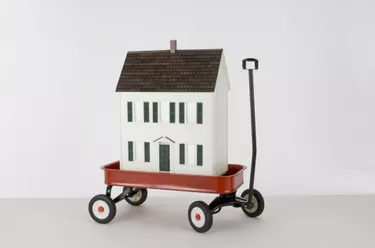
A mobile home is more commonly known as a "manufactured home," which is a house built in a factory according to standards set by the U.S. Department of Housing and Urban Development. Most people need a mortgage to purchase one. If you have the deed to a mobile home and your credit score is high enough to qualify for a loan, you can usually use the deed as collateral for a small loan.
.
Video of the Day
Video of the Day
Loan Limits
A small personal loan for one person might be a big loan for someone else. At the time of publication, most major banks usually set a minimum home equity loan limit of about $10,000. For the most part, it's not worth the trouble for major lending institutions to process and service a mobile home equity loan for less than that amount.
Credit Requirements
Even if a financial institution will accept the deed to your mobile home as collateral, loan officers will still need to be confident you are able to pay back the loan as promised. This means you need to have a relatively high credit score and a verifiable source of steady income sufficient enough to pay back the personal loan after all your current expenses and credit obligations.
Property Requirements
The bank will want to have an appraiser inspect the mobile home to place a value on the property and determine if there is enough equity to serve as collateral for the personal loan. The mobile home must be fixed on a permanent foundation and well maintained. Any alterations you made must be in accordance with the U.S. Department of Housing and Urban Development regulations. Most banks will require that you live in the mobile home and the structure is not older than 1977.
Default
When you use your mobile home deed as collateral, you are pledging your home as collateral to pay back any borrowed monies. If you fail to adhere to the repayment plan and your loan goes into default status, the lender has a legal right to foreclose on your property. Typically, however, a small personal loan will come secondary to the primary mortgage on your mobile home, if you have one. In this case, instead of forcing foreclosure, the lender may simply put a lien against your property. You won't be able to sell or transfer your property without satisfying this debt.